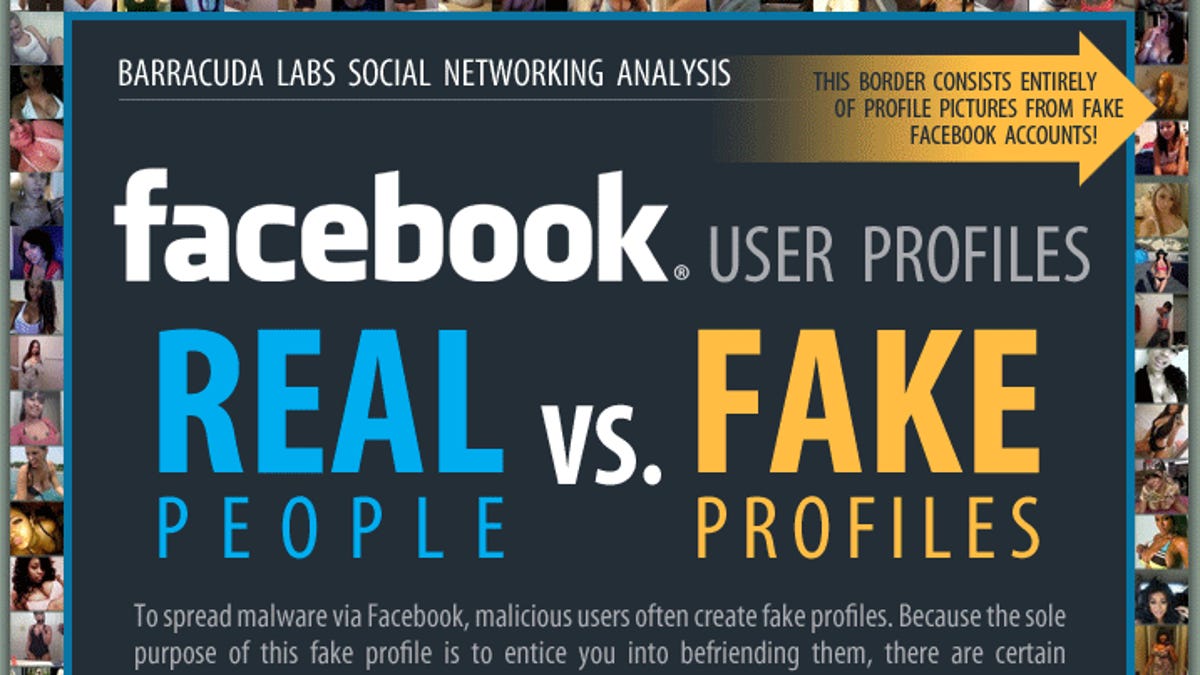How to identify fake Facebook accounts
Barracuda Networks releases a study that helps identify fake Facebook accounts.

Hello, Facebook friends, I am male, straight, often ridiculously good-looking, and this is a real message: she's not that into you.
And by she, I mean one of those hot girls on Facebook who always seems too desperate and overzealous in trying to connect to you and everyone on your friend list.
Apparently, of some 850 million active Facebook users, a lot are fake profiles created to spread spam and viruses. These are often categorized as spammers or attackers. Security firm Barracuda Networks released today the findings from its most recent study that helps distinguish attackers from real users. Here are the study's four key findings.
Some 60 percent of fake accounts purport to be bisexuals, about 10 times more than real users.
Fake Facebook accounts tend to have lots of friends, about six times more than real users. On average this is about 726 friends versus 130.
Fake accounts tend to abuse photo tagging and on average do this about 100 times more often than real users. On average, a fake account tags about 136 times for each four photos while a real account tags just once among each four of them.
Finally, fake accounts almost always claim to be those of female users, with about 97 percent, as opposed to 40 percent for real users.
In addition, fake accounts also tend not to update their status, with 40 percent of them never doing so.
Basically if you find somebody on your friend list who's a female, who is interested in both sexes, has lots of friends, never updates her status, and excessively tags every single photo, chances are she's not a real person. You can find the complete infographic of how to distinguish between real people and fake profiles here.
According to Paul Judge, chief research officer at Barracuda Networks, apart from being targeted for spam, friending fake accounts can lead to your account getting taken over using Facebook's trusted-friend account recovery. You can also become a victim of phishing and other malicious acts.
Barracuda Networks says the study is the result of data collected from its Barracuda Profile Protector--a free tool that analyzes and blocks malicious activity on Facebook and Twitter--and public data collected from streams and network crawling that demonstrates how users typically operate.
If you're interested in finding how secure your Facebook account is, give the Profile Protector a try, and don't hesitate to unfriend those people you don't actually know.

